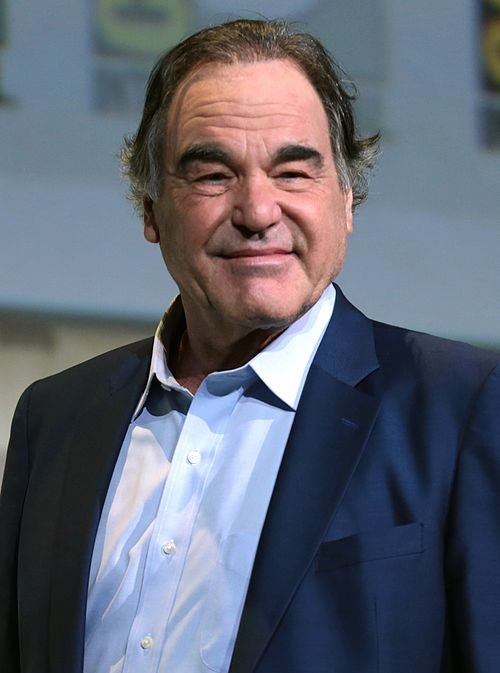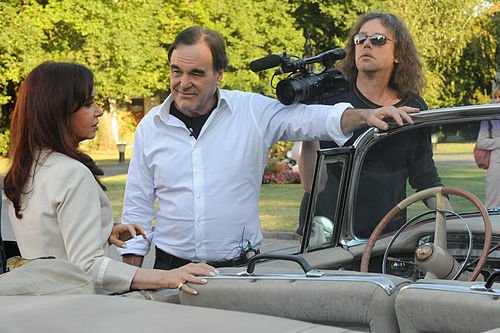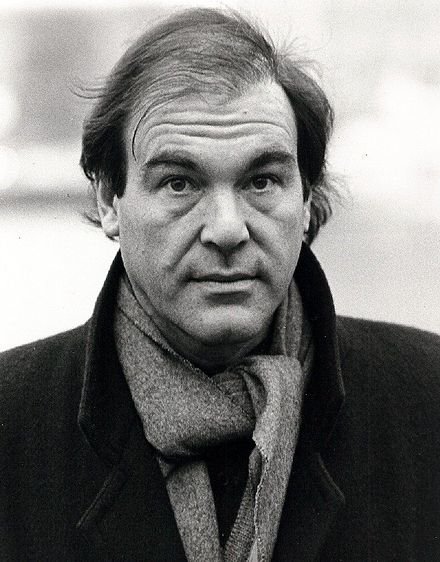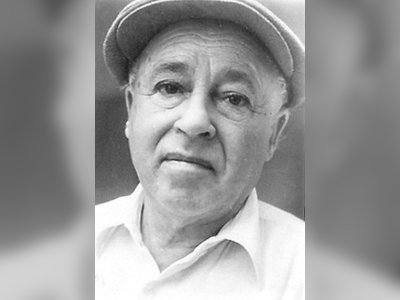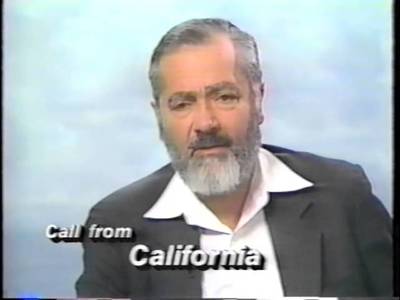Oliver Stone
William Oliver Stone, born on September 15, 1946, is an American filmmaker and conspiracy theorist of Jewish descent. He has achieved tremendous success with his biographical films and other works, earning three Academy Awards, especially for his film "Platoon." He has also garnered significant acclaim for his documentary work on television. Many of his films delve into controversial American political events.
Since the beginning of his career in 1973, Stone has established himself as one of the greatest filmmakers of all time in the movie industry, but he is also one of the most controversial figures.
Stone was born in New York, USA. His father was Jewish, and his mother was Catholic, but he himself was baptized as an Episcopalian Christian. He began his studies at Yale University but left after a year and worked as a teacher in South Vietnam and as a merchant seaman.
In 1967, he enlisted in the U.S. Army and underwent training as an infantryman. He was assigned to the 25th Infantry Division and later to the 1st Cavalry Division, where he fought in the Vietnam War.
Stone was wounded twice during his service and received the Bronze Star for bravery in combat and the Purple Heart for injuries sustained in battle. His military service had a profound impact on his work.
After his release from the army in 1968, Stone began studying film at New York University and, in 1973, directed his first film, "Seizure." In 1978, he achieved his first significant cinematic success when the screenplay he adapted for the film "Midnight Express" won an Academy Award and a Golden Globe for Best Adapted Screenplay. Throughout the 1980s, Stone worked primarily as a screenwriter for directors like Brian De Palma, Michael Cimino, and John Milius.
In 1986, he wrote and directed the film "Salvador." It was the first time that he expressed his left-wing political views. However, it was his 1986 film "Platoon," which tells the story of a platoon of soldiers during the Vietnam War, that established him as a leading director, earning him an Academy Award for Best Director, and the film itself won the Academy Award for Best Picture.
Stone's films depict American society as a violent, competitive world manipulated behind the scenes by wealthy elites and special interests, working against the common man. He illustrated the transformation of Woody Harrelson and Juliette Lewis into serial killers without a conscience in "Natural Born Killers" (1994) as a commentary on sensationalized media.
He portrayed the corruption of a young and naive Charlie Sheen by corporate greed in "Wall Street" (1987) and the injustice done to Vietnam War veterans in "Born on the Fourth of July" (1989), for which Stone won the Academy Award for Best Director.
His films "JFK" (1991) and "Nixon" (1995) show how extreme right-wing elements, in collaboration with military-industrial interests, plotted to gain control of the United States, even assassinating President John F. Kennedy to lead the American nation into wars serving their narrow interests. In 2008, Stone directed the film "W." which explores the life of President George W. Bush.
In 2016, he directed and wrote the biographical drama film "Snowden," based on the life of Edward Snowden and his involvement in the espionage case. The film was released in the United States in September 2016 and in Israel in January 2017.
In 2002, Stone spent time in Israel and filmed a documentary about the Israeli-Arab conflict, interviewing leaders like Yasser Arafat, Shimon Peres, and Benjamin Netanyahu. The film, titled "Persona Non Grata," was released in 2003.
In February 2012, it was reported that his son, producer and actor Sean Stone (formerly Ali), had converted to Islam in Iran.
An important stylistic element in Stone's films is his use of various cameras and formats, ranging from VHS to 8mm film, and even 70mm.
Anti-Semitic Expressions
In 2010, Stone was interviewed by "The Sunday Times" about his documentary series "The Untold History of The United States," in which he claimed to present Joseph Stalin and Adolf Hitler in more "contextual" historical terms. During the interview, he made offensive comments about Jews, suggesting that the emphasis on the Holocaust in discussions of World War II was due to the "Jewish domination of the media." He also claimed that Hitler had harmed Russians more than Jews. Following these remarks, he issued an official apology for his comments about Jewish control of the media, describing them as "grotesque."
As a result of his controversial remarks, there were calls from right-wing circles in the United States to boycott him and his films. However, the American-Jewish organization, the Anti-Defamation League, accepted his apology.
- אוליבר סטוןhe.wikipedia.org
